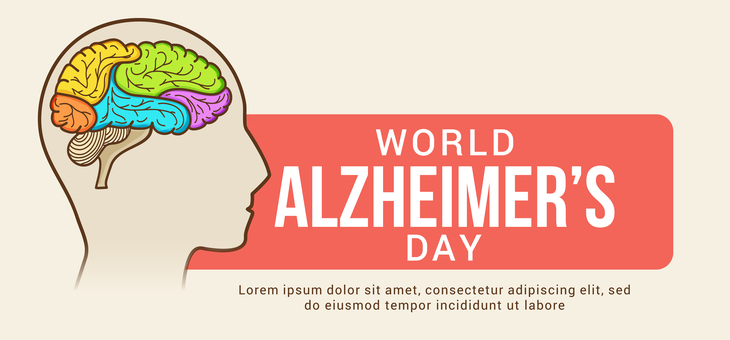Today is World Alzheimer’s Day – a day to create more awareness about a fatal disease striking down more Australians each year.
An estimated 425,000 Australians have dementia, with the number projected to reach more than 1.1 million by 2056. Of those, 770,000 are likely to have a diagnosis of Alzheimer’s disease.
Before last century, the disease was relatively uncommon because few people lived long enough to develop what is essentially a deterioration of the brain’s ability to function properly.
Nowadays, with better health and medical interventions, older people can expect to live many more years than their forebears did, but unfortunately not without the consequences that ageing brings to the body’s organs, including our grey matter.
Alzheimer’s is just one of about 100 diseases that come under the umbrella of dementia. Other similar illnesses include vascular dementia, Lewy body disease, frontotemporal dementia and alcohol-related dementia.
What makes Alzheimer’s stand apart is that it affects 70 per cent of all people with dementia.
According to Dementia Australia, Alzheimer’s disease affects three in 10 people over the age of 85.
The illnesses’ main symptoms are impaired memory, thinking and behaviour.
Named after German neurologist Dr Alois Alzheimer, who first recorded the disease in 1907, it was not until the 1970s that Dr Robert Katzman declared that ‘senile dementia’ and Alzheimer’s were the same condition and not a normal part of ageing.
At the turn of last century, Dr Alzheimer had observed changes in the brain of a deceased middle-aged woman called Auguste Deter. He discovered that the outer layer of the brain showed signs of shrinkage due to the death of brain cells This part, known as the cortex, is associated with storing memories, language and judgement.
He also discovered abnormal deposits in the dead woman’s brain – plaques and neurofibrillary tangles. The latter add to the demise of brain cells by blocking the movement of nutrients. Plaques block signals from being passed between cells.
Science has yet to pinpoint why some individuals develop Alzheimer’s and others do not, however, dozens of studies are looking into potential causes, including environmental, biochemical and immunity factors.
A number of tests can be used to try to determine whether individuals are suffering from the disease. But so far, there is no cure that will eliminate the condition.
What does exist are drugs called cholinergerics, which provide temporary improvement in cognitive functioning for those with mild Alzheimer’s.
For more information contact the National Dementia Helpline on 1800 100 500. A range of books and videos are also available from Dementia Australia libraries and Help Sheets can be accessed from the organisation’s site.
To find a Dementia Awareness Month event near you during September, visit the Dementia Australia site or you can watch a video on how technology is addressing the condition. A new documentary on dementia, Every Three Seconds, has also been released by Alzheimer’s Disease International.
How concerned are you that you will be affected by Alzheimer’s? Do you have experience of the condition among your family or friends? Did you know that early detection can slow the deterioration of the disease?
Related articles:
Statin link to Alzheimer’s
Stroke doubles dementia risk
Dementia risk under microscope

